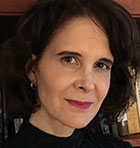
COVID-19's Cultural Legacy

Elizabeth Outka, professor of English, researches late 19th and early 20th century literature and culture. Her latest book investigates how one of history's deadliest plagues in history - the 1918-1919 influenza pandemic - silently reshaped the modernist era.
"Trauma is usually spectral in that it is often something that people remember not directly but diffusely. You can have sensory things in your environment that will trigger it. Right now, we are all being primed for that to happen," said Outka. "I think that you’d be hard pressed to find anybody 10 years from now who won’t see a face mask—or see the tired faces of doctors or nurses, or the beeping of these machines, or a respirator, or the smell of a Clorox wipe—and be brought back to these moments. It becomes like a specter that is everywhere in the brain and in the emotional life."
Contact Sunni Brown, director of media and public relations, at sbrown5@richmond.edu to connect with Outka.



